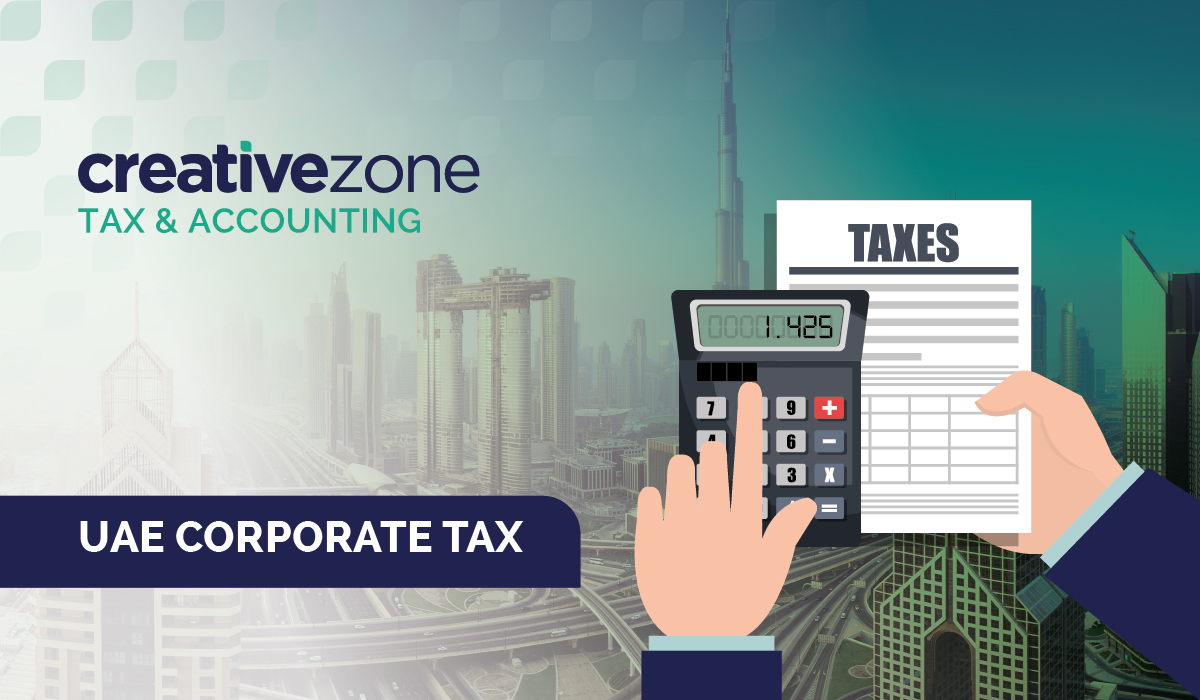
Some businesses have been drawn to the Gulf nation because of the duty-free regime. Now, a new UAE corporate tax erodes UAE’s tax-free status while Free-Zone entities will continue to receive tax incentives. However, we will see that the new Corporate Tax regime remains very attractive compared to other countries.
What is a Corporate Tax?
In UAE, the Corporate Tax is a form of direct tax. The Federal Tax Authority is responsible to collect the tax on benefits made by UAE companies.
What Is The Timeline For UAE Corporate Tax Becoming Effective?
As announced by the UAE’s Ministry of Finance, the Corporate Tax will be imposed on UAE-based businesses beginning in financial years that begin on or after 1st June 2023.
Which Businesses Are Subject To Corporate Tax In UAE?
Businesses in the UAE shall be subject to a corporate tax regime that incorporates best practices worldwide to reduce compliance burdens. According to internationally accepted accounting standards, the profit of UAE businesses will report in their financial statements will be subject to corporate tax, with a few exceptions and adjustments. All commercial activities and businesses will be subject to the corporate tax, except for the extraction of natural resources, which will continue to be taxable at the Emirate level.
The UAE corporate tax regime will be one of the most competitive globally since it is set to have a standard tax rate of 9 percent (9%) and a zero percent (0%) tax rate on taxable profits up to AED375,000 to encourage startups and small businesses.
How Will The Large Multinational Be Charged?
For large multinational companies that meet specific criteria defined by the OECD’s ‘Pillar Two’ project, a different tax rate is applicable. Multinational companies are corporations with presence in more than one country, whether it is via foreign subsidiaries, branches or other forms of presence. An enterprise that earns income from a foreign market in its home country without an overseas presence or registration would not be considered multinational.
“Large” refers to a multinational corporation with global revenues exceeding EUR 750m (c. AED 3.15 bn) under the OECD Base Erosion and Profit Shifting project’s “Pillar Two”.
Do Individuals Have To Pay Income Tax?
There will be no tax levied on income earned by individuals from employment, real estate, or other investments or from any other source that does not arise from an activity that has been licensed or authorized in the UAE.
Does The Corporate Tax Apply To Free-Zone Companies As Well?
Free-Zones have significantly impacted the UAE’s economy and competitiveness, so the UAE Corporate Tax scheme will continue to offer incentives to Free-Zone companies that comply with regulatory requirements and do not conduct business with mainland UAE.
Will an individual who invests in UAE real estate be subject to Corporate Tax?
Individuals in the UAE are not subject to the UAE Corporate Tax if they are carrying out such activity in their personal capacity without obtaining a license or permit for commercial activities.
What Other Changes Have Been Made?
Because the UAE is an international financial centre and an international business centre, it will not apply withholding taxes to domestic and cross-border payments or levy Corporate Tax on investors who do not do business in the UAE.
In addition, Dubai businesses with international headquarters will be exempt from paying tax on dividends and capital gains received from qualifying shares. Dubai businesses with global offices will be able to deduct foreign taxes paid in other countries from UAE Corporate Taxes.
Qualifying shareholdings are ownership interests in UAE or foreign companies that meet certain conditions outlined in the Corporate Tax law.
Loss utilisation rules will be generous in the Corporate Tax system. Groups can be taxed as a single entity or take advantage of group relief for intragroup transactions and restructurings.
How Would The UAE Corporate Tax Be Calculated?
Suppose a company has a Net Profit of AED 450,000 for the year ended 2024. The Corporate Tax will be calculated as follows:
- Taxable income upto AED 375,000 at 0% = AED 0
- Portion of taxable income exceeding AED 375,000 (i.e. AED 450,000 – AED 375,000 = AED 75,000) at 9% = AED 6,750
- Total Income Tax payable by the company will be AED 0 + AED 6,750 = AED 6,750
What Does It Mean For You And Your Business?
Businesses that prepare and maintain adequate financial statements will benefit from the Corporate Tax regime designed to limit compliance burdens. It will no longer be necessary for firms to make advance tax payments or file provisional tax returns. Businesses will file a single annual Corporate Tax return each year.
Make Creative Zone Tax & Accounting your reliable partner to handle preparing and planning the upcoming Corporate Tax compliance process so your business does not incur penalties. Our tax specialists will help you determine whether or not Corporate Tax applies to your business. They can help you to introduce and implement any necessary changes to make this tax compliance process as smooth as possible.
Do you want to know more about the new Corporate Tax? Are you looking for a concise, easy to read and accessible guide? Lucky you! You can download our FREE guide here.
